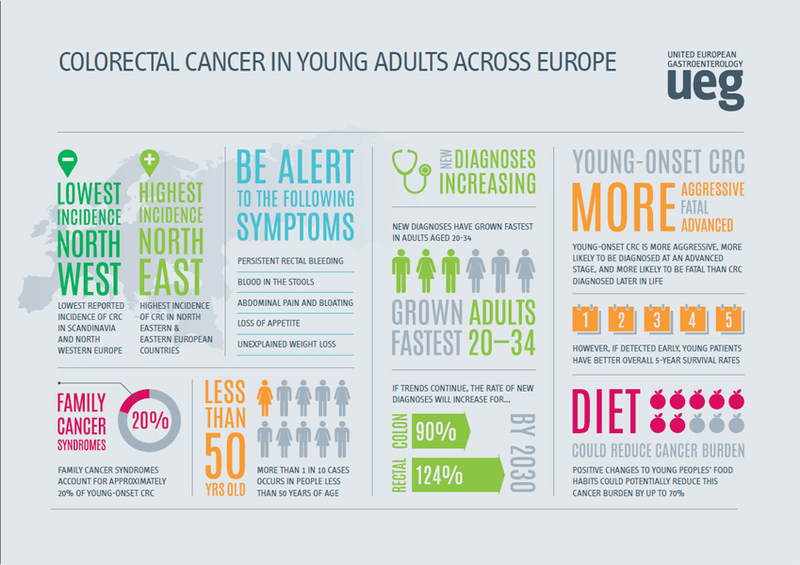Are you younger than 50?
These 5 steps can save your life!
1. Talk with your family about hereditary deseases.
5 to 10% of all colorectal cancer cases are familial. Open conversations with your family can help to identify your risk. Affected families should develop an individual prevention plan with their doctors, which should start at a young age.
Detailed information:
- Familial & Hereditary Colorectal Cancer Risk – Felix Burda Foundation
2. Recognize symptoms.
- Rectal bleeding or blood in your stool
- A change in bowel habits: diarrhea, constipation, narrowing of the stool, or a frequent urge to go to toilet
- Persistent cramping or abdominal (belly) pain, nausea, loss of appetite
- Permanent fatigue, weakness, pale skin, unintentional weight loss
These signs should always be checked with the doctor. Youth must not be a reason to delay examination. The colonoscopy method can be useful for a distinct diagnosis.
3. Test on hidden blood in stool.
In addition to pain and altered bowel habits bleeding is the most alarming symptom, because blood vessels in larger colorectal polyps or cancers are often fragile and easily damaged by the passage of feces.
Fecal blood tests detect (hidden) blood which can have multiple causes; so checking the positive result with a doctor can significantly reduce your risk of colorectal cancer.
4. Answer the questionnaire to determine your colon cancer risk.
 Questionnaire available in English, Spanish, French, Italian, Turkish.
Questionnaire available in English, Spanish, French, Italian, Turkish.
5. Read and learn more.
Colorectal Cancer Prevention and Early Detection – American Cancer Society Inc.

